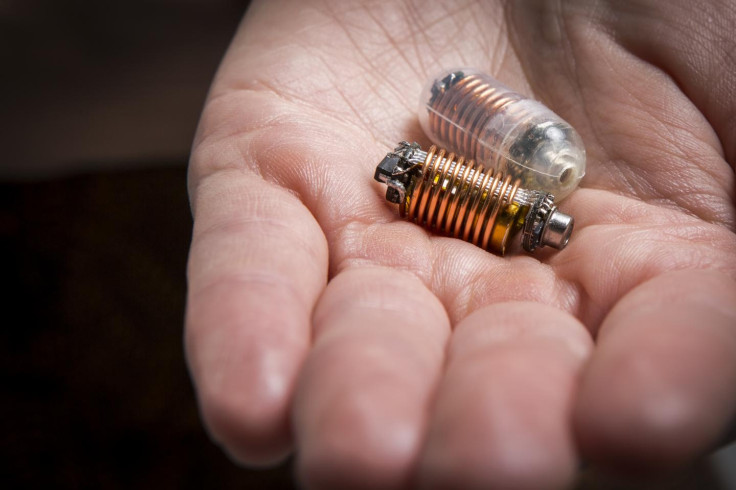This smart pill lets you track a fart's progress through your body
Ingestible sensors offer a potential diagnostic tool for many gut disorders.

A ground-breaking new 'smart pill' could revolutionise the way we treat, prevent and diagnose gut disorders and diseases.
In early trials, researchers from RMIT University in Melbourne uncovered aspects of the body's biology which have never been seen before, including a potentially new immune system mechanism.
The new technology could have huge implications for one-in-five people worldwide who will suffer from a gastrointestinal disorder in their lifetime, and could lead to fewer invasive procedures, such as colonoscopies.
The small ingestible capsule measures gut gases – such as hydrogen, carbon dioxides and oxygen – in real time, with the data viewable on a mobile phone app.
"We found that the stomach releases oxidising chemicals to break down and beat foreign compounds that are staying in the stomach for longer than usual," said Kourosh Kalantar-zadeh, lead author of the study. "This could represent a gastric protection system against foreign bodies. Such an immune mechanism has never been reported before."
Another unprecedented observation was that the colon may contain oxygen.
"Trials showed the presence of high concentrations of oxygen in the colon under an extremely high-fibre diet," Kalantar-zadeh said. "This contradicts the old belief that the colon is always oxygen free. "This new information could help us better understand how debilitating diseases like colon cancer occur."
The capsules were tested on seven healthy individuals and were able to accurately detect the onset of food fermentation, meaning they could be used as a way to determine gut health.
"Previously, we have had to rely on faecal samples or surgery to sample and analyse microbes in the gut," Kalantar-zadeh said. "But this meant measuring them when they are not a true reflection of the gut microbiota at that time. Our capsule will offer a non-invasive method to measure microbiome activity."
The team is now seeking to commercialise the technology.
"The trials show that the capsules are perfectly safe, with no retention," said co-inventor Kyle Berean. "Our ingestible sensors offer a potential diagnostic tool for many disorders of the gut from food nutrient malabsorption to colon cancer. It is good news that a less invasive procedure will now be an option for so many people in the future."





















